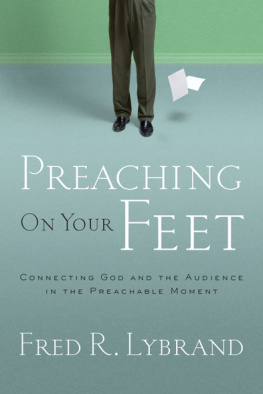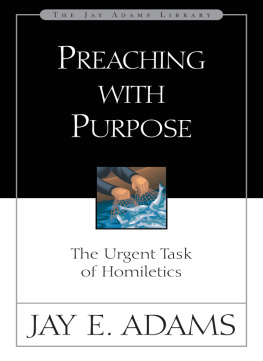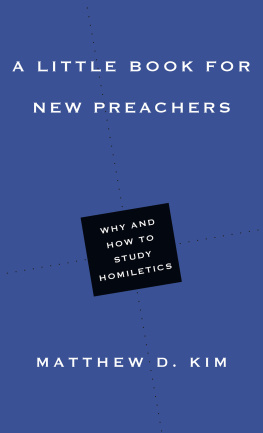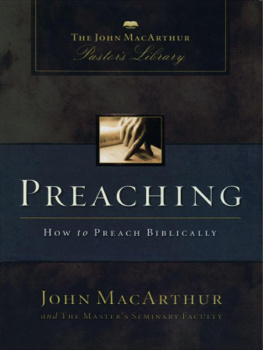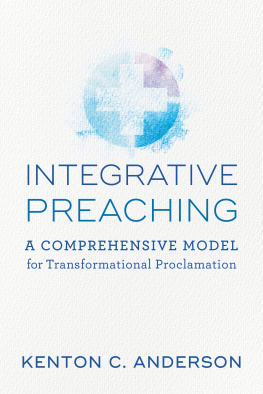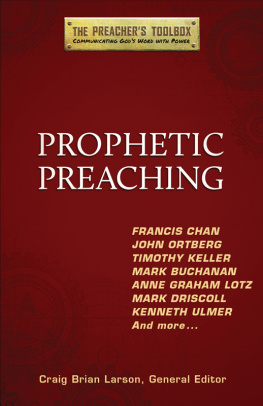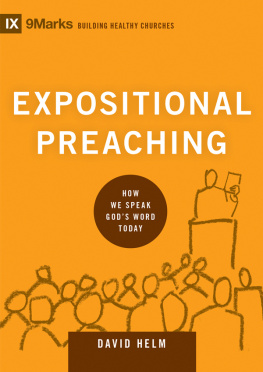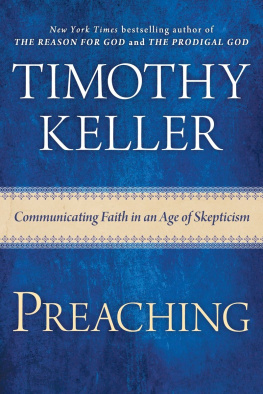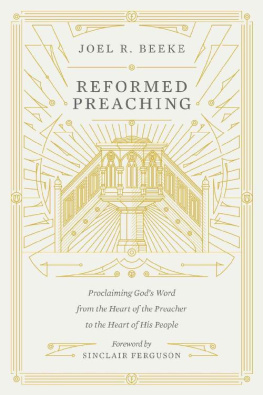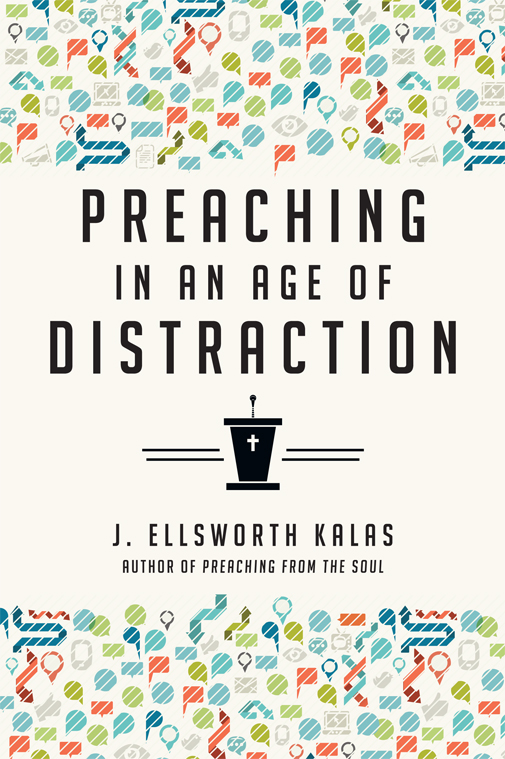True friends are a divine gift at all times but particularly so in times of complex need. Years ago, at such a time in my life, God blessed me with two such friends, Malcolm McCuaig (now with his Lord) and Maxie Dunnam.
I dedicate this book to them with a sense of eternal gratitude.
1
Preaching in an Age of Distraction
I have pursued the art, craft and calling of preaching since the middle of the last century and I still thank God dailyyes, sometimes several times a dayfor the privilege of standing in a pulpit or its equivalent. For me there is no higher calling. Id like to give another life to it.
But I know that starting again in this second decade of the twenty-first century would be very different from the world in which I began preaching, or even the world of a decade or two ago. We live in the Age of Distraction, and it seems to be accelerating.
Not that distraction is new to me as a preacher. It comes with the territory. I didnt realize it at the time, but sometimes during my teenage years I was myself a distraction to the preacher and to some of the people sitting nearby. Crying babies and happy, playful infants have always been a challenge in churches without a nursery room. I think back often on those loyal dairy farmers who had been up before dawn to do their chores. Now, in the warmth of the church and with the preachers voice drifting comfortably over them, they fell asleep during the sermon. For a time this distracted me terribly, but I slowly realized that their happy rest didnt bother anyone else and it shouldnt bother me.
Along the way there were occasions of dramatic distraction. I still shiver slightly when I recall the bat that visited our worship service one Sunday morning, swooping down repeatedly while I tried to hold a dodging congregation attentive to the sermon. And there was the Good Friday service during the Vietnam War when six or eight university students stood up midway through a sermon and unfurled banners challenging the war. They remained standing for the rest of the message.
But its a different ball game today. I sense it when I stand up to preach, as I do fifty or sixty times a year, or as I listen to friends who are every-Sunday preachers. Its not just the prospect of a cell phone ringing during a sermon. Most people have learned to turn off the sound before coming to church. Some even leave the cell phone in the car. But its not as easy to leave the cell phone mentality in the car. Weve developed a kind of mental and emotional edginess that goes with us even when the materials of implementation are not there.
Phrases of the culture say as much. We belong to the always-on, always-connected digital world, and we find it gratifying to see ourselves that way. Many of the people who come to church on Sunday have just watched a sitcom the night before, with its changing scene every ten or fifteen seconds and its three or four commercials in the space of a minute. Can we expect people who experience life in such fashion all through the week to give undivided attention to a sermon or a prayer when theyre accustomed to living with several clamoring voices surrounding them at all times?
The psalm tells us, Be still, and know that I am God (Ps 46:10 NRSV ). Our worshipers answer, The quiet makes me nervous.
For Preachers and Teachers, a Double Problem
Distractions present a double peril for us preachers and teachers. As communicators we have to find ways to hold the attention of people who live in the world of distractions. But we have minds and souls of our own: minds that are supposed to be creative and souls that are supposed to be God-centered. As we seek these ends we cope with distractions and intrusions in our study and devotional time that our pulpit ancestors could never have imagined.
But of course distractions arent unique to the twentieth and twenty-first centuries. They didnt begin with the Internet or with television or radio. Theyre as old as the Garden of Eden. Distraction wasnt the original sin, but it opened the door for it. Nor is distraction simply another name for temptation, but temptation surely finds a primary ally in distraction.
Lets look at the Eden story for a moment to put twenty-firstcentury distractions in theological perspective. Adam and Eve didnt get into trouble because Eden was boring. They had plenty to occupy their minds and talents. One another, to begin with. Whether they knew it or not, when they looked at each other they saw the basic plot for every short story, novel and drama that would ever be written and quite a bit of the poetry as well. And of course there was plenty to explore in their own persons. One doesnt have to be a narcissist to find ones self unceasingly interesting and surprising.
Adam and Eve had work to do, too, as resident managers of an enterprise called perfection. The varieties of the creation around them were so enchanting and so complex that millennia later their descendants are still exploring the territory. This work assignment could itself have claimed their full attention without ever coming to an end of wonders and confusions.
But most of all, there was God. Here was the one around whom all the other issues and interestsself, work, companions, nature, whateverrevolved and in whom they found their purpose and glory. To be right with God was to be right with all else, and seeing all else through the prism of Gods purposes was to see all else properly and to relate with it harmoniously. It was not that any of these other factors were bad or that they were not important. Quite the contrary; as part of Gods plan, they had singular importance. But the wonder was to know God, to sense the pleasure that God finds in us. Nothing could compare with this.
So it seems that Adam and Eve didnt really need anything. Nevertheless, they got distracted. An intruder got them thinking about other things. As it happened, this thinking led to an act of disobedience, but it began with a diversion of attention. And as the rule of learning reminds us, what gets our attention gets us.


